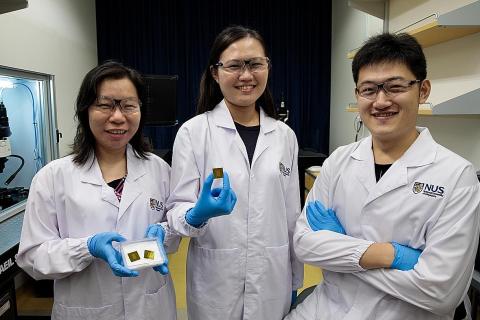SHARES

Researchers from the National University of Singapore have developed the world’s first blood test. An early Alzheimer’s diagnosis, even before clinical symptoms appear!
The team comprising of Assistant Professor Dr. Shao Huilin, doctoral students Carine Lim and Zhang Yan have developed this new blood test to detect the disease in its early stages. By paving the way for an early Alzheimer’s diagnosis, this is a game-changer. Thus this development is renewing hope for how Alzheimer’s treatment can be more successful.
The Amplified Plasmonic Exosome (APEX) is able to detect an aggregated amyloid-beta (Aβ). This is an early-stage molecular marker of Alzheimer’s disease – the most common cause of severe dementia. The current design is able to analyse 60 samples simultaneously, with results being available within an hour.
Alzheimer’s diagnosis
Dr. Shao and his team have worked on the two-year-long study. He said: “There is currently no good blood-based method to effectively screen and monitor Alzheimer’s disease. New tests that are under investigation have either poor accuracy or low sensitivity.”
Presently, there are three ways in which medical practitioners diagnose dementia. These are neuropsychological test, spinal fluid sampling, and positron emission tomography (PET).
Usually, Alzheimer’s disease is detected at a late stage. Hence early detection could improve the success rate of disease-modifying therapies, she added.
If you’re still not impressed – this blood test is estimated to cost S$30. The cost at less than 1 percent of the price of a positron emission tomography (PET) scan, the current “ gold standard” for Alzheimer’s disease detection.
According to NUS, the APEX system is highly sensitive and provides an accurate diagnosis that is comparable to brain PET imaging.
Out of the 84 patients who participated in the clinical study, the diagnosis for all 68 who have dementia or neuro-vascular compromises came from the blood test. Dr. Shao said the results correlated “ extremely well” and that the APEX system was able to accurately identify patients with Alzheimer’s and cognitive impairment
She added that the team is in discussions with potential industry partners to bring the product to market.
With gruelling approximation that Alzheimer’s patients would grow from 23 million in 2015 to almost 71 million by 2050 in the Asia Pacific, this blood test might very well be what the population needs.
by Yashwini Ravindranath
Born & raised in Malaysia, Yashwini earned her M.D. studying in Moscow's Russian National Research Medical University. With an affiliation towards research, all things coffee and the startup ecosystem, she now contributes articles to GetDocSays View all articles by Yashwini Ravindranath.




